
Find Help
More Items From Ergsy search
-

Is chronic fatigue syndrome contagious?
Relevance: 100%
-
What is chronic fatigue syndrome?
Relevance: 97%
-

What causes chronic fatigue syndrome?
Relevance: 96%
-
Is chronic fatigue syndrome a mental illness?
Relevance: 92%
-
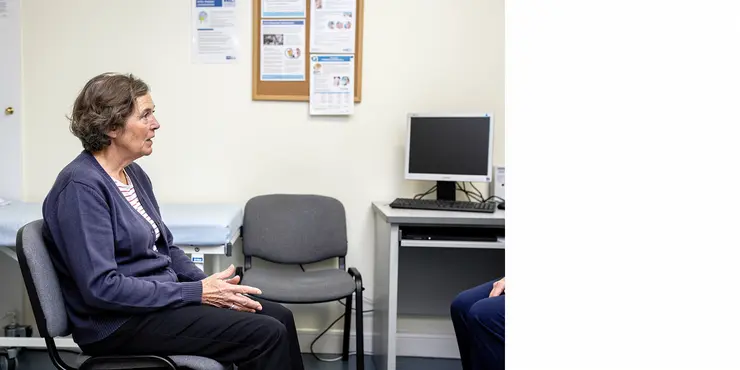
Are there psychological aspects to chronic fatigue syndrome?
Relevance: 92%
-
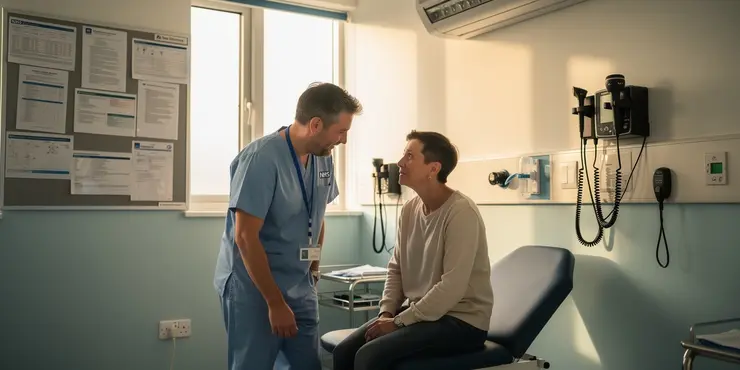
What role do infections play in chronic fatigue syndrome?
Relevance: 85%
-

Who is at risk of developing chronic fatigue syndrome?
Relevance: 85%
-
Can children develop chronic fatigue syndrome?
Relevance: 84%
-
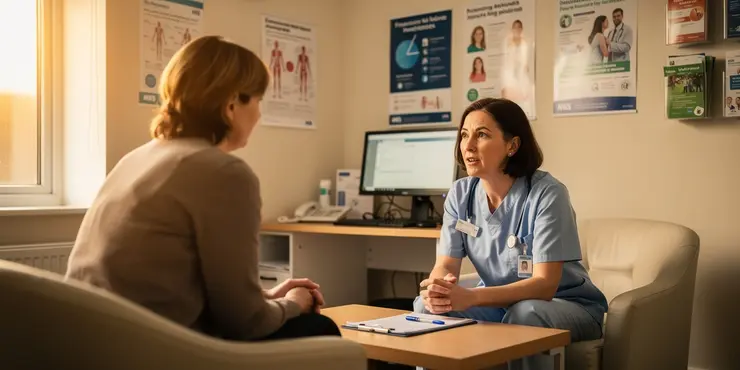
How is chronic fatigue syndrome treated?
Relevance: 81%
-

Is there a cure for chronic fatigue syndrome?
Relevance: 77%
-

Myalgic encephalomyelitis or chronic fatigue syndrome (ME/CFS) | NHS
Relevance: 75%
-

How is chronic fatigue syndrome diagnosed?
Relevance: 70%
-

Can chronic fatigue syndrome be managed with lifestyle changes?
Relevance: 62%
-
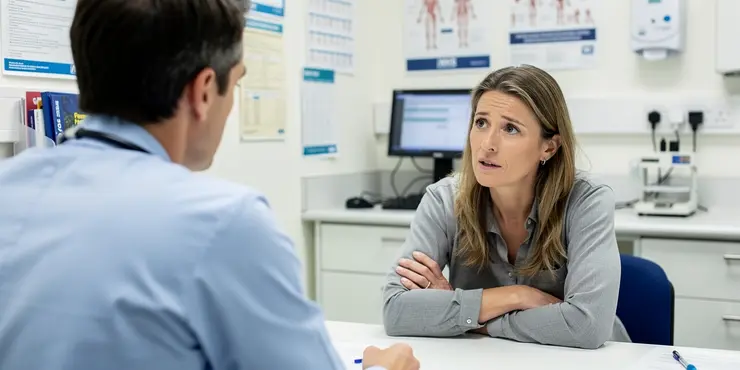
How does CFS differ from regular fatigue?
Relevance: 48%
-

Are there any alternative treatments for Carpal Tunnel Syndrome?
Relevance: 46%
-

Chronic kidney disease: What are the treatments?
Relevance: 45%
-

Can Carpal Tunnel Syndrome recur after treatment?
Relevance: 44%
-

What non-surgical treatments are available for Carpal Tunnel Syndrome?
Relevance: 43%
-

What is Cushing's syndrome?
Relevance: 42%
-

Carpal Tunnel Syndrome
Relevance: 38%
-

What is irritable bowel syndrome (IBS)?
Relevance: 38%
-
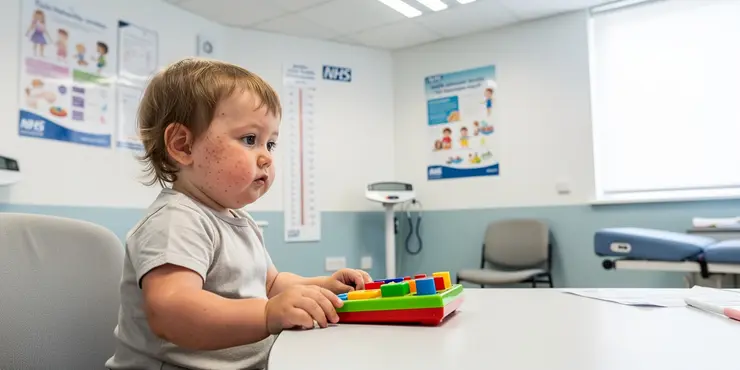
Prader-Willi Syndrome | NHS
Relevance: 37%
-

Munchausen's syndrome | NHS
Relevance: 37%
-

Is Carpal Tunnel Syndrome covered by the NHS?
Relevance: 35%
-
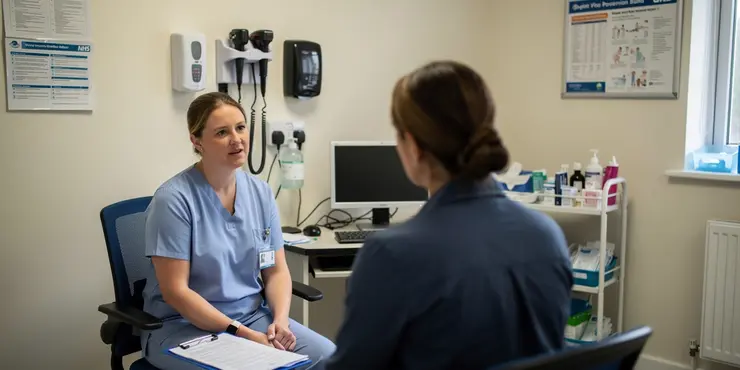
What is post-treatment Lyme disease syndrome (PTLDS)?
Relevance: 35%
-

What is Carpal Tunnel Syndrome (CTS)?
Relevance: 35%
-
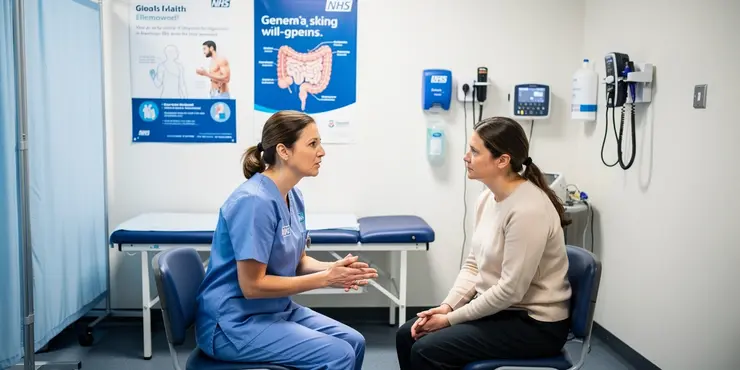
Symptoms of irritable bowel syndrome (IBS)
Relevance: 34%
-
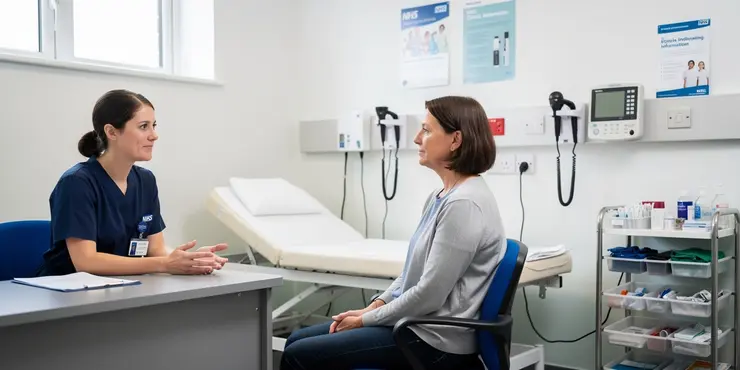
What is complex sleep apnea syndrome?
Relevance: 34%
-
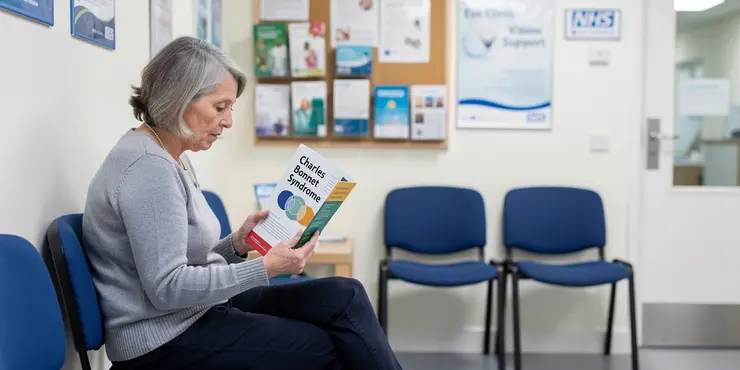
Charles Bonnet Syndrome
Relevance: 34%
-

What is complex sleep apnea syndrome?
Relevance: 34%
-

Can fatigue result in dangerous driving?
Relevance: 33%
-

About irritable bowel syndrome (IBS)
Relevance: 33%
-

What is congenital rubella syndrome?
Relevance: 33%
-
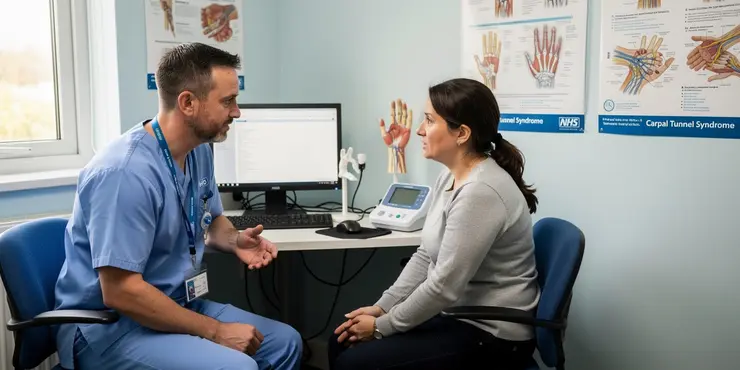
What causes Carpal Tunnel Syndrome?
Relevance: 33%
-
Can weight loss medications cause fatigue?
Relevance: 33%
-

Turner syndrome: Beyond the classic XO phenotype
Relevance: 33%
-
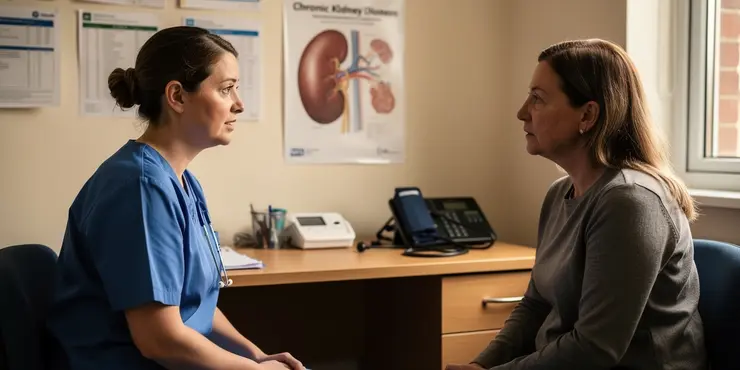
What causes chronic kidney disease?
Relevance: 33%
-

How is Carpal Tunnel Syndrome diagnosed?
Relevance: 32%
-

Exercises for sciatica: piriformis syndrome | NHS
Relevance: 32%
-

Managing Chronic Illness Within the Family
Relevance: 32%
Treatment Approaches for Chronic Fatigue Syndrome
Chronic Fatigue Syndrome (CFS), also known as Myalgic Encephalomyelitis (ME), is a complex and long-term illness that causes extreme fatigue among other symptoms. As the underlying cause of CFS remains unclear, treatment primarily focuses on alleviating symptoms and improving the quality of life for patients.
Individualised Care Plans
Given the diverse range of symptoms and how they impact each individual differently, treatment plans for CFS are highly personalised. Health professionals work closely with patients to tailor a care plan that addresses specific symptoms, activity management, and emotional support. This multidisciplinary approach often involves GPs, physiotherapists, occupational therapists, and mental health professionals.
Symptom Management
Managing symptoms is a crucial aspect of treating CFS. Since fatigue is the hallmark symptom, strategies to reduce its impact are essential. Patients might be advised on pacing activities and resting adequately between tasks to avoid exacerbating symptoms.
Pain management is also important. Medications such as over-the-counter pain relievers, or in some cases, prescription medications, can help manage muscle and joint pain. Sleep disturbances, which are common in people with CFS, might be addressed with sleep hygiene practices or, if necessary, medication.
Cognitive Behavioural Therapy (CBT)
Cognitive Behavioural Therapy is often recommended as part of a comprehensive treatment plan. CBT helps patients cope with the emotional and psychological aspects of CFS. It aims to change unhelpful thought patterns and behaviours and can help patients manage symptoms and improve their ability to carry out daily activities.
Graded Exercise Therapy (GET)
Graded Exercise Therapy is a structured programme that aims to gradually increase a patient’s physical activity. It is usually supervised by healthcare professionals. However, its use is controversial among patients, with varying opinions on its effectiveness. Therefore, it should be considered carefully and tailored to the individual's condition, ensuring that it is safe and appropriate for them.
Alternative Treatments and Lifestyle Changes
Some patients explore alternative treatments such as acupuncture, meditation, or dietary supplements in managing their symptoms. While evidence on their effectiveness varies, these approaches might provide additional relief for some individuals.
Lifestyle changes can also play a supportive role. A balanced diet and regular, gentle physical activity tailored to the individual’s limitations can contribute to overall well-being.
Support Networks
Emotional and social support is integral for individuals living with CFS. Support groups, whether local or online, can offer a sense of community and understanding. Patients benefit from sharing experiences and receiving encouragement from others facing similar challenges.
In the UK, organisations such as the ME Association and Action for ME provide valuable resources, advocacy, and support for those affected by chronic fatigue syndrome and their families.
Treatment for Chronic Fatigue Syndrome
Chronic Fatigue Syndrome (CFS), also called Myalgic Encephalomyelitis (ME), makes you very tired. It is a long-lasting illness with many symptoms. Doctors do not know what causes it, so treatment helps to ease symptoms and make life better for people with CFS.
Personal Care Plans
Everyone with CFS has different symptoms. This means each person needs a special care plan just for them. Doctors and other health workers work closely with patients. They help with specific symptoms, planning activities, and giving emotional support. A team might include doctors, physiotherapists, occupational therapists, and mental health workers.
Handling Symptoms
Taking care of symptoms is very important. Fatigue, or being very tired, is common. People are taught to manage activities and rest well to avoid feeling worse.
Pain is another issue. Medicines like pain relievers from the pharmacy can help. Sometimes, doctors prescribe stronger medicine to manage muscle and joint pain. Sleep problems are common. Good sleep habits or medicine might help.
Cognitive Behavioural Therapy (CBT)
Cognitive Behavioural Therapy can help with the feelings and thoughts related to CFS. It helps change negative thoughts and actions. CBT can help people handle symptoms and do daily tasks better.
Graded Exercise Therapy (GET)
Graded Exercise Therapy is a plan to slowly increase how much exercise a person does. Health workers guide this plan. Some people do not find it helpful, so it needs to be chosen carefully to suit the person’s needs and keep them safe.
Other Treatments and Lifestyle Changes
Some people try other treatments like acupuncture, meditation, or vitamins. They work differently for each person, but they might help some people feel better.
Changes in daily habits can also help. Eating balanced meals and doing gentle exercise can improve overall health if tailored to what a person can manage.
Support
Having support is very important for people with CFS. Being part of a support group, either in-person or online, can help people feel less alone. Sharing stories and getting encouragement from others is helpful.
In the UK, groups like the ME Association and Action for ME provide important information and support for people with CFS and their families.
Frequently Asked Questions
What is the primary approach to treating chronic fatigue syndrome (CFS)?
The primary approach to treating CFS is a combination of patient education, lifestyle changes, and symptom management tailored to the individual.
Are there medications specifically approved for CFS?
No, there are no medications specifically approved for CFS, but certain medications can be used to manage symptoms.
How is cognitive behavioral therapy (CBT) used in treating CFS?
CBT can help patients with CFS by addressing unhelpful thought patterns and developing coping strategies to manage the condition.
Can exercise help in managing CFS?
Graded exercise therapy (GET) can be helpful for some CFS patients, but it should be approached cautiously and tailored to the individual's capabilities.
What lifestyle changes are recommended for people with CFS?
Lifestyle changes such as establishing a regular sleep schedule, pacing activities to avoid overexertion, and reducing stress can be beneficial.
Is there a dietary approach recommended for CFS patients?
While there is no specific diet for CFS, maintaining a balanced and nutritious diet can support overall health and energy levels.
How can pain associated with CFS be managed?
Pain management may include the use of over-the-counter pain relievers, prescription medications, physical therapy, and complementary therapies like acupuncture.
Are sleep problems common in CFS, and how can they be treated?
Yes, sleep disturbances are common. They can be treated through sleep hygiene practices, cognitive behavioral therapy for insomnia, and sometimes medications.
Is counseling available for CFS patients?
Counseling, including cognitive behavioral therapy, can be an important part of a treatment plan to support mental health and coping strategies.
Can complementary therapies be beneficial for CFS?
Some patients find complementary therapies such as acupuncture, massage therapy, and yoga helpful alongside conventional treatments.
Why is pacing important in managing CFS?
Pacing helps CFS patients balance activity and rest to prevent exacerbating symptoms, also known as post-exertional malaise.
How important is patient education in treating CFS?
Patient education is critical, as it empowers individuals to understand their condition, manage symptoms, and make informed decisions about their care.
Can antidepressants be used to treat CFS symptoms?
Antidepressants may be used to address depression and anxiety symptoms in CFS patients, as well as sometimes helping with sleep and pain.
Is there any emerging research or treatment for CFS?
Research is ongoing, with studies exploring various factors such as immune dysfunction, metabolic issues, and potential new treatments.
Are there any support groups for CFS patients?
Yes, there are support groups and patient advocacy organizations that provide resources and community for individuals with CFS.
Is it safe for CFS patients to exercise?
Exercise should be approached with caution. Patients are encouraged to follow individualized plans such as graded exercise therapy and avoid over-exertion.
What role does stress management play in treating CFS?
Stress management is crucial, as reducing stress can help alleviate symptoms and improve overall wellbeing for CFS patients.
How do healthcare providers monitor CFS treatment progress?
Providers monitor progress through regular follow-ups, evaluating symptom changes, and adjusting treatments as necessary based on patient feedback.
Are there any risks associated with the CFS treatments?
Some treatments like graded exercise or medications have potential risks, and they should be discussed with healthcare providers to ensure safe and effective care.
How long does it take to see improvements in CFS symptoms with treatment?
Improvements can vary greatly among individuals, with some seeing changes within weeks, while for others, it may take much longer to identify effective strategies.
How do doctors help people who feel tired all the time? (Chronic Fatigue Syndrome)
Doctors use different ways to help people who are always tired. Here are some things that might help:
- Talking to a doctor: They can check your health and find ways to make you feel better.
- Healthy habits: Eating good food and getting enough sleep can help your body.
- Exercise: A little bit of moving each day can make you feel stronger.
- Relaxation: Doing calming activities can help your mind rest.
It is important to talk to a doctor about how you feel. They can help find the best way to support you.
To help people with CFS, we use three things:
1. **Learning**: We teach the person about CFS so they understand it better.
2. **Lifestyle changes**: We help them make changes in their daily life. This could include resting more, eating healthy, or doing gentle exercises.
3. **Managing symptoms**: We find ways to make their symptoms feel better. This is different for each person.
Are there medicines just for CFS?
CFS stands for Chronic Fatigue Syndrome. It means feeling very tired all the time. There are no special medicines made just for CFS. But, doctors can give other medicines to help with some of the symptoms, like pain or trouble sleeping.
If you have CFS, it's important to talk to your doctor. They can help find ways to make you feel better. Using a notebook to write down how you feel each day might help. You can also try relaxing activities, like listening to music or taking slow, deep breaths.
No, there are no special medicines just for CFS. But some medicines can help with the symptoms.
How does talking therapy help people with CFS feel better?
CBT can help people with CFS. It works by changing unhelpful thoughts and finding new ways to cope with the illness.
Can exercise help if you have CFS?
Exercise is moving your body to stay healthy. CFS stands for Chronic Fatigue Syndrome, which means feeling very tired for a long time.
If you have CFS, sometimes moving around can help you feel better. It's important to start with easy exercises. You can do things like walking or stretching.
Always talk to a doctor before you start. A doctor can help you know what exercises are safe.
Here are some tips to help:
- Start with short, easy exercises.
- Rest when you feel tired.
- Use a timer to know when to stop.
- Write down what exercises you do and how you feel after.
Remember, it's okay to go slow. Everyone is different, so do what feels right for you!
Exercise can help some people with CFS feel better. This is called graded exercise therapy (GET). It is important to start slowly and not do too much. Exercise should match what each person can handle.
What can people with CFS do to feel better?
If you have CFS, here are some things you can try:
- Rest a lot. Make sure you get enough sleep.
- Do gentle exercises, like walking or stretching.
- Eat healthy food with lots of fruits and vegetables.
- Try to stay relaxed. You can use deep breathing or listen to music.
- Take breaks when you feel tired.
You can also use tools to help you feel better:
- Keep a diary of how you feel each day.
- Set small goals, like doing one nice thing each day.
- Talk to friends or family when you need support.
Try to make some changes to your daily life. Go to bed and wake up at the same time every day. Take breaks so you don't get too tired. Try to stay calm and not get too stressed.
Is there a special way of eating for people with CFS?
People with CFS, or Chronic Fatigue Syndrome, might feel very tired a lot. Eating healthy food can help them feel better. Here are some simple tips:
- Eat lots of fruits and vegetables.
- Choose whole grains like brown bread instead of white bread.
- Eat lean proteins like chicken, fish, or beans.
- Drink plenty of water every day.
- Avoid too much sugar and junk food.
If you have CFS, it's good to talk to a doctor or a dietitian. They can help make a plan that is right for you. Using a food diary can help track what you eat and how it makes you feel.
There is no special food plan for CFS. But eating healthy food can help you feel better and have more energy.
How can we help pain from CFS?
CFS stands for Chronic Fatigue Syndrome. It makes people feel very tired and can hurt their body.
Here are some ways to help with pain:
- Talk to a doctor: A doctor can give advice and medicine to help with pain.
- Do gentle exercise: Stretching and walking can help keep the body moving.
- Try relaxation: Deep breathing or listening to calming music can ease pain.
- Rest well: Make sure to get enough sleep and take breaks during the day.
- Eat healthy: Foods like fruits and vegetables can give your body energy.
- Use a pain diary: Write down when and where it hurts to see patterns.
If the pain is strong, ask an adult or a carer for help.
There are different ways to help with pain. You can take medicine you buy at the store, or medicine a doctor gives you. Exercise and moving your body can help too. Some people find it helpful to try things like acupuncture, where tiny needles are used on the skin.
Do people with CFS have trouble sleeping, and how can it be fixed?
People with CFS often have trouble sleeping. Here are ways to help:
Regular Bedtime: Go to bed and wake up at the same time every day.
Calm Time: Have a quiet time before bed. You can read a book or listen to calm music.
Comfy Bedroom: Make sure your bed and room are comfy. Keep it dark and cool.
Stay Away from Screens: Turn off TVs and phones at least one hour before bed.
Talk to a Doctor: A doctor can help and suggest other things to make sleeping easier.
Yes, having trouble sleeping is common. You can get help with it. Try good sleep habits, a special talking therapy called CBT-I, and sometimes medicine.
Can people with CFS talk to a counselor?
Yes, people who have Chronic Fatigue Syndrome (CFS) can talk to a counselor. A counselor is someone who listens and helps you with your feelings.
If you have CFS and want to see a counselor, here are some tips:
- Ask your doctor: Your doctor can help find a counselor for you.
- Talk to someone you trust: They might know a counselor who can help.
- Check online: There are websites that can help find a counselor near you.
Talking to a counselor can help you feel better and manage your CFS. It’s okay to ask for help!
Talking with someone who can help, like a counselor, can be very important. This is called therapy. One type of therapy is called cognitive behavioral therapy. It can help you feel better and learn new ways to deal with problems.
Do other treatments help with CFS?
CFS means Chronic Fatigue Syndrome. It makes people feel very tired.
Some people try extra treatments to feel better. These are called complementary therapies.
These treatments might include:
- Massage
- Yoga
- Acupuncture
- Herbal medicine
These can help some people feel better. But they might not work for everyone.
Talking to a doctor can help find what is best for you.
Tools that might help:
- Using pictures or videos to understand better
- Asking for help to read difficult words
It's important to try what feels right for you!
Some people feel better when they use other treatments with their regular doctor’s care. These can be:
- Small needle therapy (acupuncture)
- Body rubs (massage therapy)
- Body and mind exercises (yoga)
These can help some people feel better.
Why is pacing important in managing CFS?
Pacing helps people with CFS (Chronic Fatigue Syndrome) to feel better. It means doing a little bit at a time and resting often. This way, you don't get too tired or feel unwell.
To help manage CFS, try these tips:
- Plan your day. Do small activities and take breaks.
- Listen to your body. Rest when you need to.
- Use a calendar or planner to keep track of your activities.
These steps can help you feel more in control and less tired.
Pacing helps people with CFS (Chronic Fatigue Syndrome) balance between doing things and resting. This stops their symptoms from getting worse. When symptoms get worse after doing too much, it is called post-exertional malaise.
Why is it important to teach people about CFS?
Helping people understand Chronic Fatigue Syndrome (CFS) is very important. When people know more about CFS, they can feel more in control. It helps them make better choices to feel better.
Simple ways to teach about CFS include using easy words and pictures. It can also help to use videos or tell stories about people with CFS.
It's very important for people to learn about their own health. This helps them understand their illness, take care of their symptoms, and make smart choices about their health care.
Can medicine for sadness help with CFS feelings?
Some people take medicine that helps when they feel really sad. Can this medicine also help people who feel very tired all the time, called Chronic Fatigue Syndrome (CFS)? Talk to a doctor to find out the best choice.
If reading is hard, using tools like audiobooks or asking someone to read with you can help.
Medicine for feeling sad or worried might help people with CFS. It can also help them sleep better and feel less pain.
Are there new ideas or treatments for CFS?
People are studying Chronic Fatigue Syndrome (CFS) to find new ways to help. CFS makes you very tired and can be hard to understand.
Researchers are looking for new treatments and ways to help people with CFS feel better. They want to find out why CFS happens and how to make it go away.
If you have CFS, you can try to:
- Talk to a doctor who knows about CFS
- Rest when you feel tired
- Try gentle exercises, like walking
- Eat healthy food
- Keep track of what makes you feel tired
If reading is hard, try:
- Using an app to read text out loud
- Breaking information into small, easy bits
- Asking someone you trust to explain
Scientists are still working hard to find answers. They are looking at how our body's defense system, called the immune system, might not work properly. They are also studying how our body uses energy and looking for new ways to help people feel better.
Are there any support groups for people with CFS?
Do you have CFS (Chronic Fatigue Syndrome) and need help?
There are groups for people with CFS. These groups are for talking and helping each other.
You can share your stories and learn about living with CFS.
Here are some things you can try:
- Ask your doctor about CFS groups.
- Look online for CFS support groups near you.
- Join CFS Facebook groups to talk with others.
Talking to others can make you feel better and less alone.
Yes, there are groups and organizations that can help people with CFS. They offer resources and a community where people can support each other.
Can people with CFS do exercise safely?
People with CFS might be wondering if they can exercise without it being harmful.
It is important to talk to a doctor before starting any exercise. The doctor can give advice on what is safe.
Start with gentle exercises like walking or stretching. Go slowly and listen to your body.
Using a diary can help keep track of how you feel after exercising. It can be useful to notice what works and what doesn't.
Some people find it helpful to have someone with them for support during exercise.
Be careful with exercise. It is important to have a plan that is just right for you. Start with a little bit and slowly do more, like in graded exercise therapy. Don't exercise too much all at once.
How does controlling stress help with CFS?
Managing stress can help people who have Chronic Fatigue Syndrome (CFS) feel better. Here are some ideas to try:
- Relaxation techniques: Try deep breathing, gentle yoga, or listening to calming music.
- Routine: Keep to a daily schedule for meals and bedtime to help your body feel good.
- Talk to someone: Share your feelings with a friend or a counselor.
Remember, everyone is different, and it’s good to find what works best for you.
It is important to handle stress, because having less stress can help people with CFS feel better.
How do doctors check if CFS treatment is working?
Doctors check how you are doing by talking to you often. They see how your symptoms are changing and might change your treatment if needed. It's important to tell them how you are feeling.
Do the CFS treatments have any risks?
Some treatments, like doing more exercise or taking medicine, might have risks. You should talk with doctors or nurses about them. This will help you to stay safe and feel better.
When will I feel better from CFS after starting treatment?
It might take time to feel better from Chronic Fatigue Syndrome (CFS). Everyone is different. Some people may feel a bit better in a few weeks, but for others, it can take months.
Here are some tips to help you:
- Keep a diary of how you feel. This can help you see changes over time.
- Talk to your doctor regularly. They can give you advice.
- Try to do a little bit of exercise every day, but don’t push too hard.
- Get enough rest and sleep each night.
Remember, everyone is different, and it is important to be patient with yourself.
Everyone is different. Some people feel better in a few weeks. Others take a lot longer to find what helps them best.
Useful Links
This website offers general information and is not a substitute for professional advice.
Always seek guidance from qualified professionals.
If you have any medical concerns or need urgent help, contact a healthcare professional or emergency services immediately.
Some of this content was generated with AI assistance. We’ve done our best to keep it accurate, helpful, and human-friendly.
- Ergsy carfully checks the information in the videos we provide here.
- Videos shown by Youtube after a video has completed, have NOT been reviewed by ERGSY.
- To view, click the arrow in centre of video.
- Most of the videos you find here will have subtitles and/or closed captions available.
- You may need to turn these on, and choose your preferred language.
- Go to the video you'd like to watch.
- If closed captions (CC) are available, settings will be visible on the bottom right of the video player.
- To turn on Captions, click settings .
- To turn off Captions, click settings again.
More Items From Ergsy search
-

Is chronic fatigue syndrome contagious?
Relevance: 100%
-
What is chronic fatigue syndrome?
Relevance: 97%
-

What causes chronic fatigue syndrome?
Relevance: 96%
-
Is chronic fatigue syndrome a mental illness?
Relevance: 92%
-

Are there psychological aspects to chronic fatigue syndrome?
Relevance: 92%
-

What role do infections play in chronic fatigue syndrome?
Relevance: 85%
-

Who is at risk of developing chronic fatigue syndrome?
Relevance: 85%
-
Can children develop chronic fatigue syndrome?
Relevance: 84%
-

How is chronic fatigue syndrome treated?
Relevance: 81%
-

Is there a cure for chronic fatigue syndrome?
Relevance: 77%
-

Myalgic encephalomyelitis or chronic fatigue syndrome (ME/CFS) | NHS
Relevance: 75%
-

How is chronic fatigue syndrome diagnosed?
Relevance: 70%
-

Can chronic fatigue syndrome be managed with lifestyle changes?
Relevance: 62%
-

How does CFS differ from regular fatigue?
Relevance: 48%
-

Are there any alternative treatments for Carpal Tunnel Syndrome?
Relevance: 46%
-

Chronic kidney disease: What are the treatments?
Relevance: 45%
-

Can Carpal Tunnel Syndrome recur after treatment?
Relevance: 44%
-

What non-surgical treatments are available for Carpal Tunnel Syndrome?
Relevance: 43%
-

What is Cushing's syndrome?
Relevance: 42%
-

Carpal Tunnel Syndrome
Relevance: 38%
-

What is irritable bowel syndrome (IBS)?
Relevance: 38%
-

Prader-Willi Syndrome | NHS
Relevance: 37%
-

Munchausen's syndrome | NHS
Relevance: 37%
-

Is Carpal Tunnel Syndrome covered by the NHS?
Relevance: 35%
-

What is post-treatment Lyme disease syndrome (PTLDS)?
Relevance: 35%
-

What is Carpal Tunnel Syndrome (CTS)?
Relevance: 35%
-

Symptoms of irritable bowel syndrome (IBS)
Relevance: 34%
-

What is complex sleep apnea syndrome?
Relevance: 34%
-

Charles Bonnet Syndrome
Relevance: 34%
-

What is complex sleep apnea syndrome?
Relevance: 34%
-

Can fatigue result in dangerous driving?
Relevance: 33%
-

About irritable bowel syndrome (IBS)
Relevance: 33%
-

What is congenital rubella syndrome?
Relevance: 33%
-

What causes Carpal Tunnel Syndrome?
Relevance: 33%
-
Can weight loss medications cause fatigue?
Relevance: 33%
-

Turner syndrome: Beyond the classic XO phenotype
Relevance: 33%
-

What causes chronic kidney disease?
Relevance: 33%
-

How is Carpal Tunnel Syndrome diagnosed?
Relevance: 32%
-

Exercises for sciatica: piriformis syndrome | NHS
Relevance: 32%
-

Managing Chronic Illness Within the Family
Relevance: 32%


